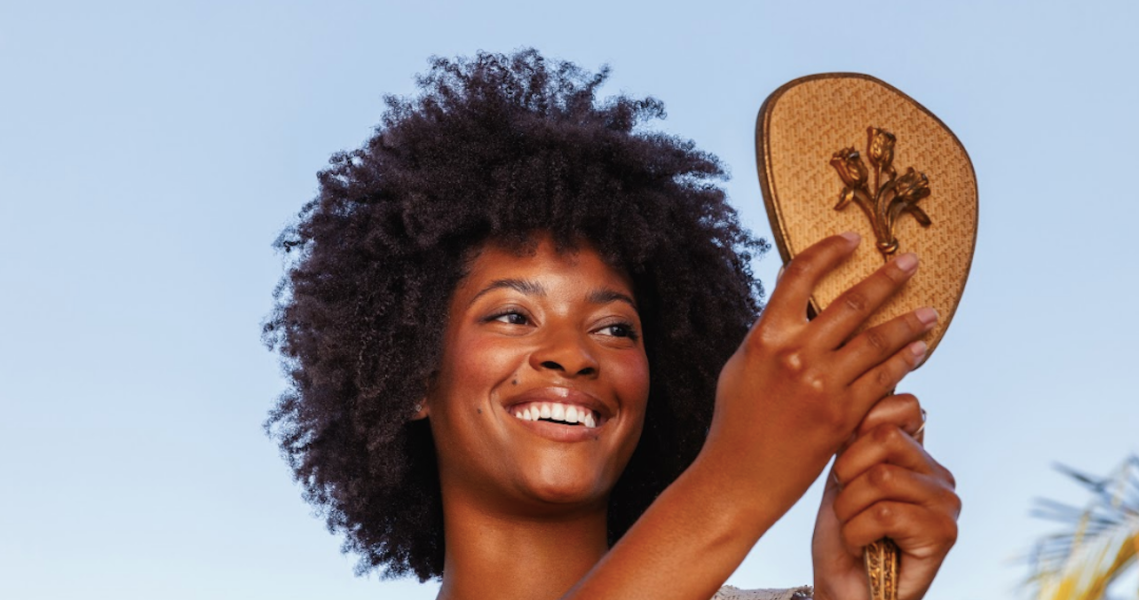Using employees as influencers is a strategy that remains alive and well.
Aura, a personalized hair-care and hair dye brand born out of eSalon in January, has relied on an employee advocacy program since its launch. Its purpose is to help pad out the brand’s Instagram and bring authenticity to the young company. It is an entirely voluntary company program and employees are not compensated. They do have the opportunity to be featured on Aura’s Instagram page (@AuraHairCare), where it has approximately 2,000 followers. About 20% of 136 people have participated since January, said Vera Koch, Aura vp of global marketing.
“User-generated content helps us to be relatable as a brand,” said Koch. “It’s always good to have some polished brand content for something like a website experience, but it is helpful for people to see that a real person in a real bathroom can utilize this product, and what the before-and-after results for this person will look like. It helps boost credibility that this is not polished on Photoshop.”
Aura is not the first to try and leverage its employees. Companies like Walmart, Macy’s and Eos have used their employees to act as influencers or advocates on social media. In 2019, L’Occitane featured 10 female employees in a formalized marketing campaign. In March, to celebrate Women’s History Month, Aura also organized its posts so that, every few days, a female employee was featured on its Instagram alongside their favorite Aura products. Captions answered the question, “What do endless possibilities mean to you?”
Aura’s sister brands eSalon and men’s hair dye brand Colorsmith have used employees in behind-the-scenes videos or “About Us” videos on their respective e-commerce sites. But Aura’s advocacy program is the first time a more formal program has taken place at the company. As a young brand, using UGC can help fill the content calendar. The goal is that these types of posts will comprise about 20% of Aura’s posts. UGC posts perform about 15% better than other Aura posts, Koch said. Additionally, the diversity of employees in both representation and background help illustrate that the personalized brand can work for several different types of people.
“Hearing authentic and genuine feedback from employees of a brand can come across as a nice way to learn more about the brand story and internal values. In this day and age, that’s very important to consumers,” said Bilal Kaiser, founder and principal at Agency Guacamole, an L.A.-based communications firm.
The Aura social media team has solicited participants via company-wide emails and corporate town hall events, plus has reached out to Slack groups or individuals. Guidelines for posting include content inspiration and examples, best practices (“Be in a well-lit area,” for example), and directions to disclose that they’re an Aura employee. Koch said there is potential to expand the employee advocacy program more formally to both eSalon and Colorsmith. She added that even though it is voluntary and there is no compensation involved, it has been viewed as a way to spotlight and acknowledge employees, which further encourages other employees to participate. Kaiser agreed, saying these programs can create a “positive feedback loop,” but only if there is a positive company culture. Otherwise, such programs can feed into a toxic work environment, as seen when other beauty brands require employees to rep a brand or product.
“It is really an opportunity to highlight and honor employees who may not usually be in the spotlight and work a lot behind the scenes,” said Koch. “It is important to make it fun, engaging and acknowledge that people are often stepping out of their comfort zone to participate.”




